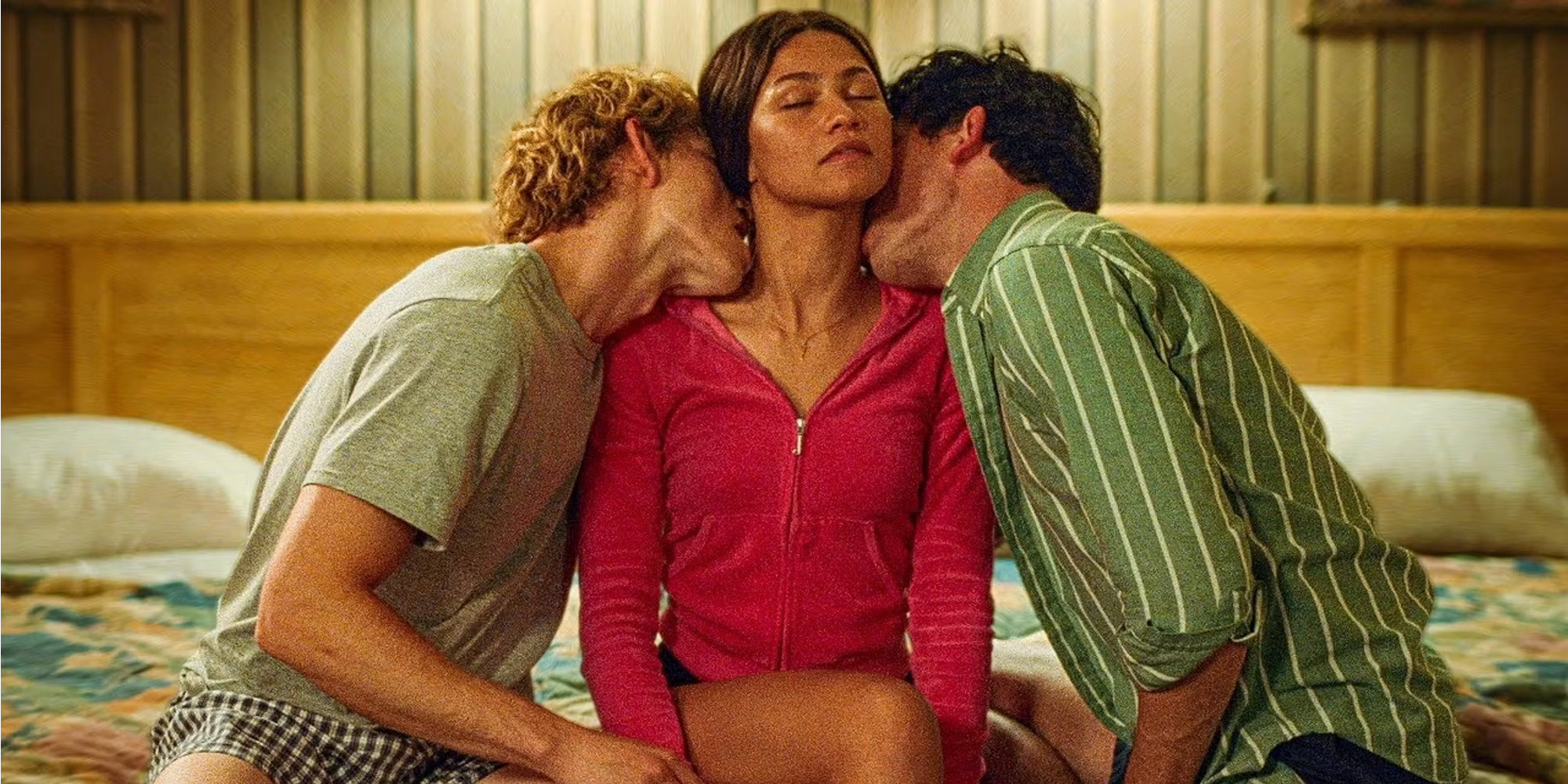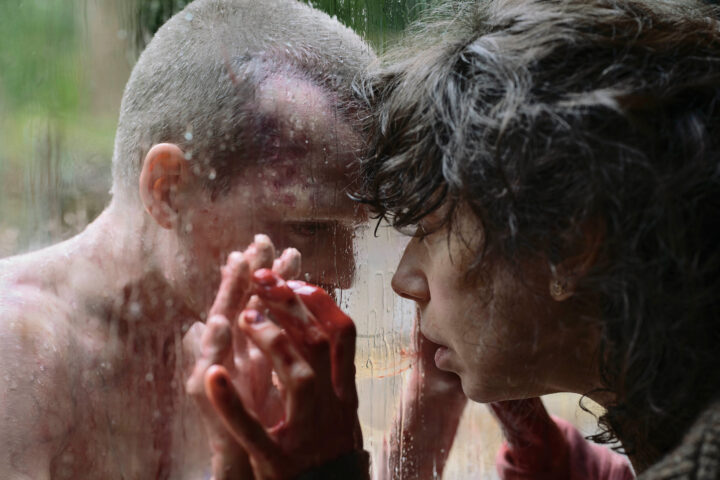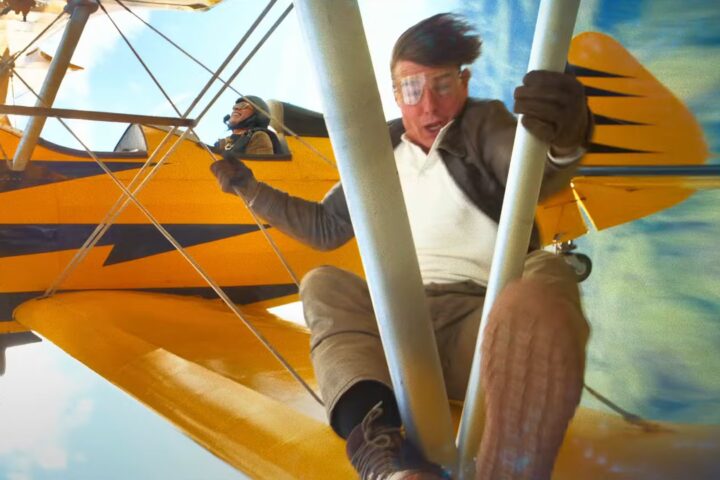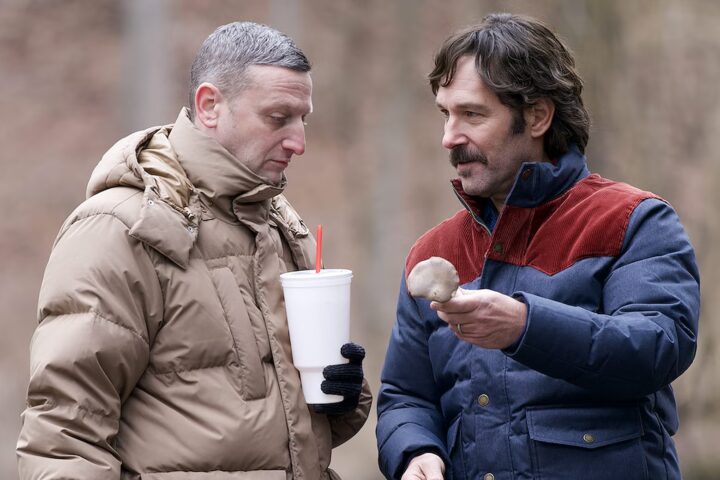The first terrific American film of 2024, Luca Guadagnino’s intoxicating Challengers is the rare, full-throttle piece of adult commercial entertainment—a smartly written, adroitly acted and technically superb piece of electric moviemaking from its opening scene to its perfect final shot. It also gives a trio of young actors a prime opportunity to raise their games onscreen with a movie artist who lifts all boats; unlike nearly every other American film these days, Challengers has been directed—you can feel the hand of a real filmmaker in every frame—to maximum vitality. It’s hot as a firecracker (or three of them) and propulsively satisfying in a way an American film hasn’t been in a long time.
Justin Kuritzkes’ barn-burner screenplay spans 15 years in the lives of three young tennis prodigies who will eventually turn pro; how they pair up both on and off court makes for seriously sexy gamesmanship. Challengers’ intricate, time-hopping story is framed around a high-stakes tennis tournament match between pro celebrity player Art Donaldson (West Side Story’s Mike Faist) and shaggy former best friend and underdog challenger Patrick Zweig (a breakout Josh O’Connor). Art’s wife and trainer Tashi Donaldson (Zendaya), a former rising tennis star turned hotshot coach, is cooly perched court side. What, exactly, is at stake in this fierce match-up?
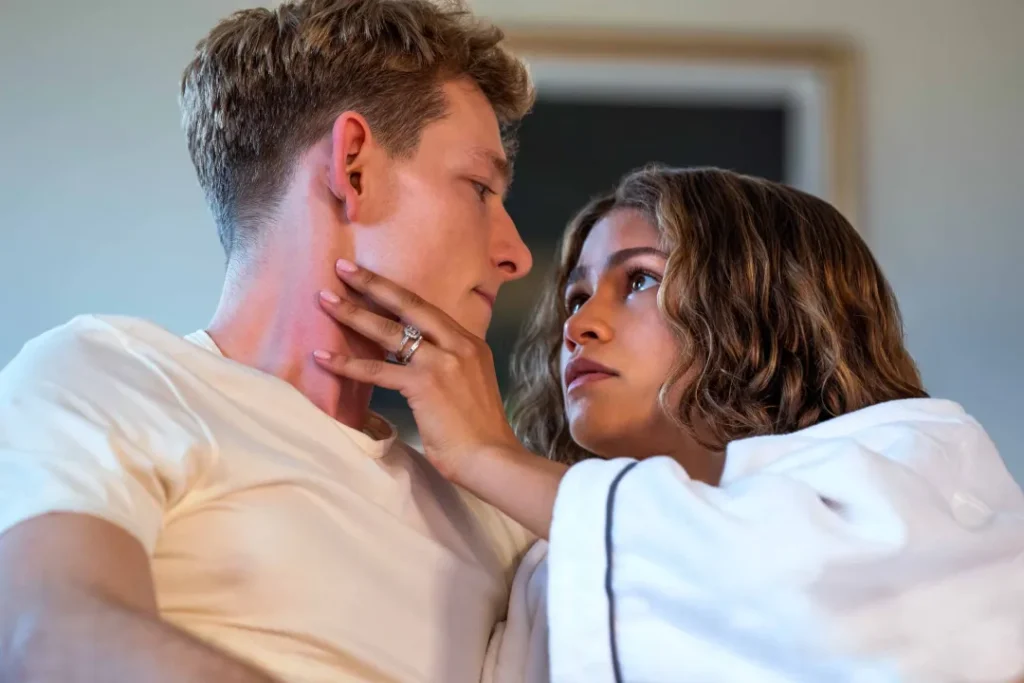
In a picture chock full of obsessive erotic and athletic rivalries, Challengers flashes back to a US Open juniors youthful encounter during which tennis academy doubles partners and best buddies Patrick and Art pair up off court for the would-be seduction of winsome juniors tennis whiz and Adidas ambassador Tashi—out of their league and a budding superstar. The unlikely trio’s erotic-comic almost tryst crackles with heated sensuality and humor, Tashi dealing dream girl cards that will propel their future fates: “So I’m the home wrecker?” For Patrick and Art, this will prove all too true.
Years pass and Tashi is now married to Art, wearing the pants on and off court and spouse turned coach, pushing her malleable, talented husband toward pro championship; weary Faist excels at registering the cost of following her lead, demerited by a string of defeats. The solution? Tashi pushes hubby Art into a PR ego boost op on a lower level challengers match intended to restore his confidence. Guess who turns out to be his challenger?
Enter Patrick, out of his former friends’ lives for a number of years but back on the court with a vengeance, having hit the skids, sleeping in his car and cruising through low-level matches after an apparent banishment by the power couple. Flash back again and we learn that Tashi and Patrick were a hot and heavy couple, so winning the match would be vindication for down and out Patrick, both over the former friend who stole his girlfriend but also a defeat of Art’s beloved coach.
Don’t think for a minute that Tashi doesn’t still harbor emotional or sexual feelings for Patrick, despite continued dismissive declarations. During a late picture reunion between the pair, Guadagnino expertly stages a sudden, galvanic windstorm, as if to suggest an elemental, Earth-moving attraction, its lovers swept into an urban maelstrom.

While love means nothing in the game, it just may be that the pain of separation, for Patrick, has as much to do with his feelings for Art as for former flame Tashi, Kuritzkes plumbing every angle of his triangle both in loyalties, infidelities and punishing commitment to the sport. Guadagnino makes that sport—thrilling shot by Sayombhu Mukdeeprom, rapid edited by Marco Costa and scored by an enervating Trent Reznor and Atticus Ross—alive in delirious ways, the camera hurling us back and forth over the net with a ball coming a hundred miles an hour down the lens. What’s at stake here is more than testosterone-infused winning—but rather emasculation and unresolved old scores for both men, who just may love each other as much as they do their vixenish muse. Liberally shuttling forward and backward in time, Guadagnino shoots and directs his gripping on and off court seriocomic epic to perfection.
While the tennis action in Challengers is arguably the best the sport has ever looked on film, Guadagnino spikes his film with sustained sexual tension, and both Zendaya and O’Connor are up for the frequently electrifying intimacies. While the film is less sex and more intimation, it’s rife with queer coded shots as Guadagnino lovingly admires lithe, shirtless male court physiques, unclothed in locker rooms and saunas, the director working to convey a (not so) under the radar intimacy between the men with pointed symbols often in teasing, inches away proximity—shared churros, strategic bananas, copious close-ups of the mens’ posteriors, feet pulling chairs close, hands on thighs, brushing cheeks and an early shot of their entangled bodies in (athletic) ecstasy suggest an aria of intense, buried intimacy. Guadagnino, as in his 2017 masterwork Call Me by Your Name, handwrites a passionate love letter to both actors.
And he loves Zendaya as well, the camera lingering on her statuesque, athletic body and a pristine close-ups of her perfect complexion and cheekbones. The actress, with complete abandon, hurls herself into Tashi’s cool customer femme fatale, cutting a mean line through the film and her costars in an eye-opening performance breakthrough. Yet while the star is the biggest “name” in the cast and fueling its marketing engine, it is O’Connor—also currently superb as the rogue archaeologist in Alice Rohrwarcher’s magical La Chimera—as caution to the wind, seat of his pants Patrick, who steals the focus and movie with a combination of rough-and-tumble sexiness, hungry sporting drive and lusty physicality. “I don’t matter?” he questions late in the film, revealing a hidden vulnerability. Like the film, O’Connor’s tactile performance reveals its layers with methodic precision.
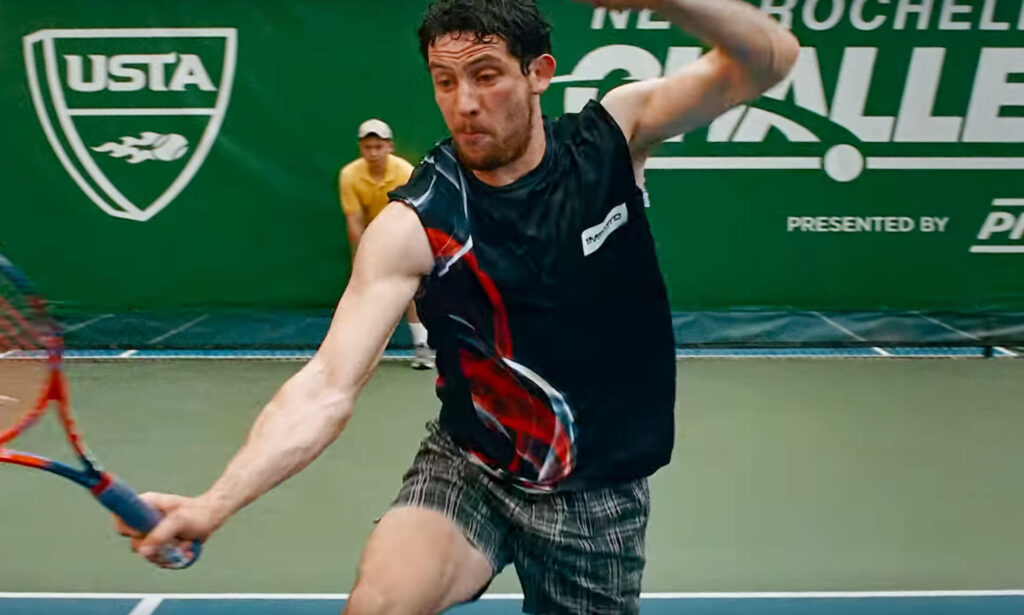
Guadagnino, the celebrated Italian filmmaker behind I Am Love, Call Me by Your Name and Bones and All, brings vivacity and stylishness to the romantic roundelay at the film’s center, a trademark given the director’s parallel fashion industry career which always informs his signature sensual aesthetic. Two late scenes—a hotel bedroom suite confessional and subsequent cramped, clandestine backseat rendezvous—positively ooze with designer style; one formally elegant, the other rendered in audacious color, slow motion and jump cuts. What’s unexpected and welcome here is the thrilling visual innovation he brings to the court in tennis sequences, gruelingly balletic to the throbbing melodic-techno score, so kinetic as to make Challengers one of the most exciting sports movies ever made.
While Tashi, Patrick and Art know exactly who they are on the court, it is off court that remains an enigma to each other and themselves. Guadagnino zeroes in on the notion of desire, considering the coarse edges of three characters who will learn the ropes of love and lust and challenges, Tashi the eternal enigma at the center. “Tennis is a relationship,” she says early, but with whom and to what end? Zendaya’s nifty puppeteer performance, giving Tashi an arms-length control of her proteges, suggests a woman toiling, in leisure and luxury, with the hearts, minds and bodies of both men. Whom Tashi most cares for she’ll never tell. Throughout, Guadagnino and his ensemble serve up such convincing seductive allure that the film’s frankness and characters’ desires feel tangibly authentic.
It’s been a long time since an American film was this sexy and exciting, and Challengers sends you out of the theater on a high. It’s a torcher.
4 stars
